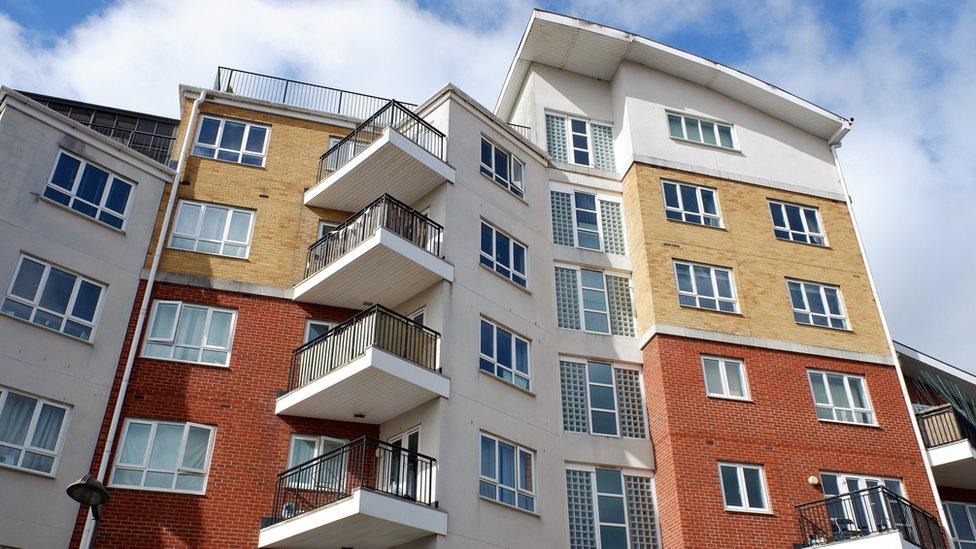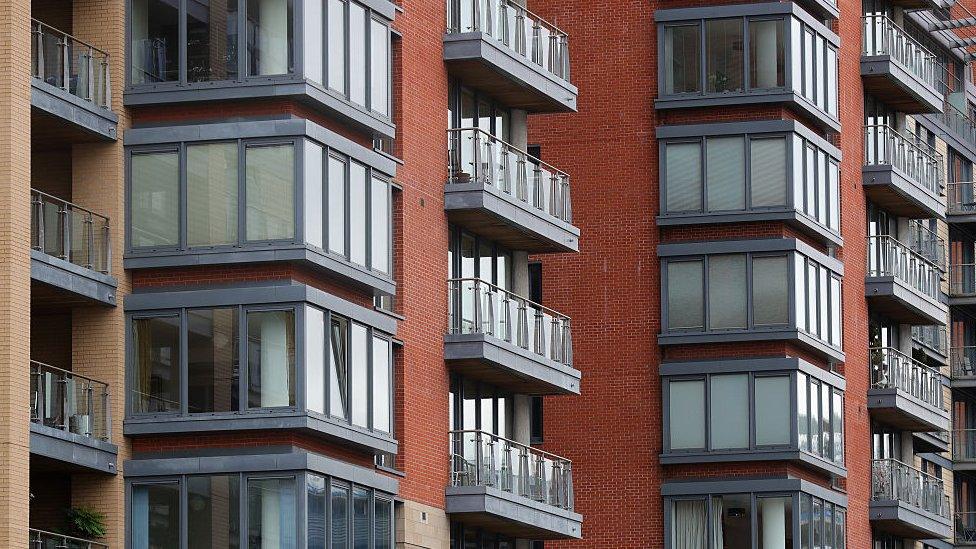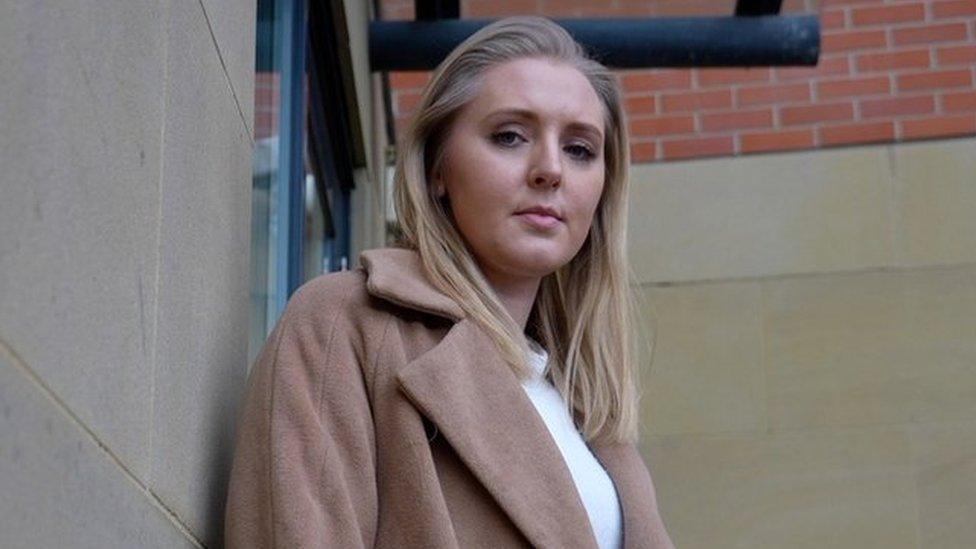MPs urge ministers to get on with leasehold changes
- Published

Ministers have been urged to "get a move on" with changes to the leasehold system in England and Wales.
Housing Secretary Michael Gove had previously promised to scrap the system which has seen some homeowners face large maintenance bills and legal fees.
However, the government's plans for leaseholds, due this year, will not include a date for ditching the system.
During a debate on the subject Labour's Lisa Nandy raised concerns the proposals were "being rowed back".
The shadow housing secretary said any delay represented a "significant setback" for leaseholders who "had thought they could finally see the light at the end of a very long, very dark tunnel".
Ms Nandy tabled a motion calling on the government to end the sale of new private leasehold houses and introduce a system to replace current private leasehold flats with commonholds.
In total, 174 MPs - all from opposition parties - voted in favour of Labour's motion. Conservative MPs abstained.
The government does not have to abide by the result of the vote, which was organised by Labour to put pressure on them.
During the debate, Housing Minister Rachel MacLean insisted the government was not U-turning on its commitments.
She said officials in her department were working "flat out" to implement reform, but added that she could not comment on precise timetables or details of the expected legislation.
Unlike a freeholder who owns a property and the land it is built on outright, a leaseholder owns a lease which gives them the right to use the property.
They have to get permission to make changes to the home and sometimes must pay expensive ground rent.
Leaseholders can also be subject to expensive legal fees if they want to extend their lease.
Around 20% of homes in England are leasehold properties, many of them flats in cities.
Mr Gove has long been critical of the leasehold system describing it as unfair and outdated.
In January he said the government would "absolutely" fulfil the pledge to abolish it and that legislation would be brought forward "shortly".
Legislation is planned to be introduced in the autumn, however it is not expected include a ban, instead introducing protections for tenants from ground rents and legal fees.
It is also expected to bring forward reforms that will make the leasehold system less attractive, and lay the groundwork for a viable commonhold system.
A commonhold system would mean occupants jointly own and take responsibility for their buildings without an expiring lease.
During a debate ahead of the vote, shadow housing secretary Ms Nandy said: "For so many people in our country, what they thought would be the reward from years of hard work, and the realisation of their dreams of homeownership, are shattered by the reality of what it means to be a leaseholder."
Housing Minister Lee Rowley insisted the government was committed to implementing leasehold reform before the next general election, including enabling leaseholders to challenge "unreasonable charges" and making it easier for people to extend their lease.
"I am pleased to see the market has already responded, with only 1.4% of houses in England now being built as leasehold compared to nearly 15% previously," he added.
Labour chair of the Housing Committee Clive Betts asked why the changes were "taking so long" adding: "The minister has just given a lot of support and commitment to do something at some stage in the future."
Some Conservative MPs also urged the government to enact changes, with Aldridge-Brownhills MP Wendy Morton asking ministers to "get a move on with it".
Related topics
- Published11 May 2023

- Published4 March 2023

- Published7 January 2021
